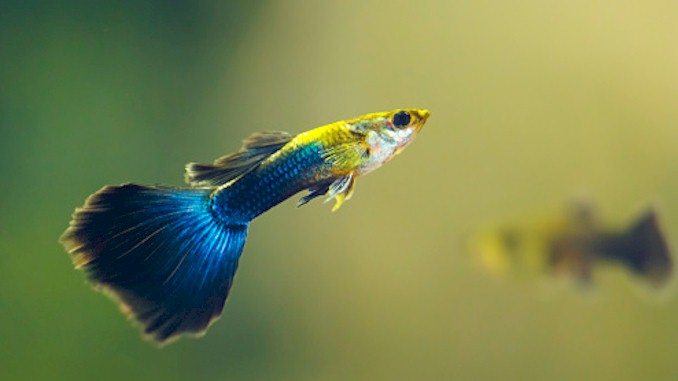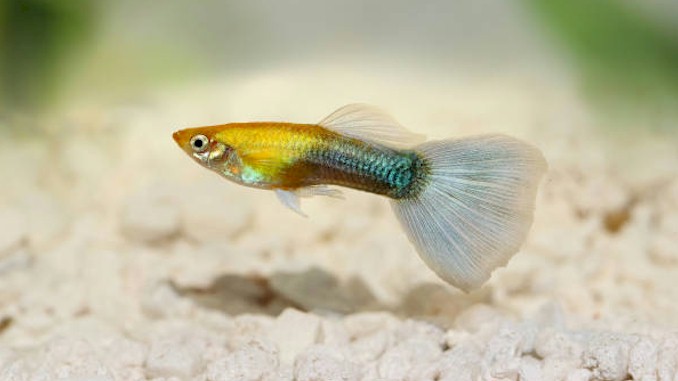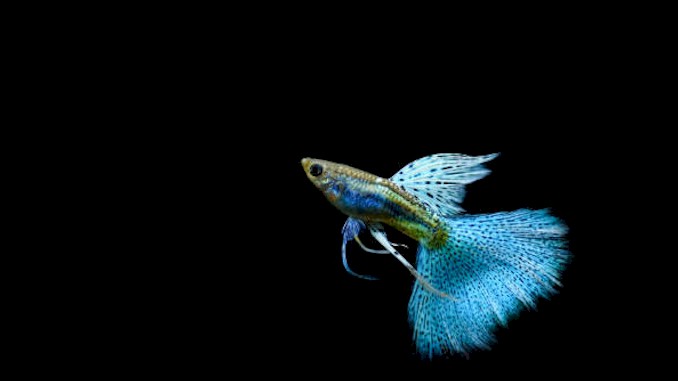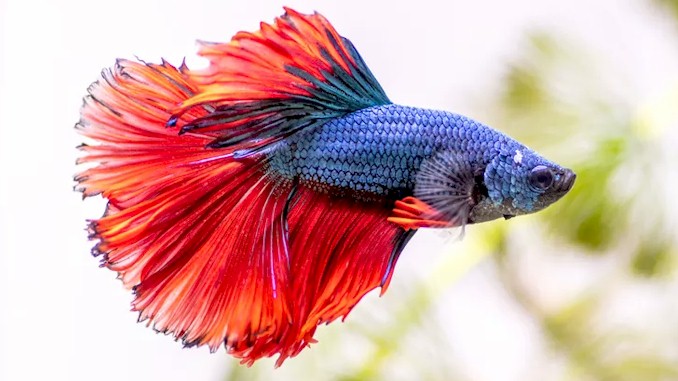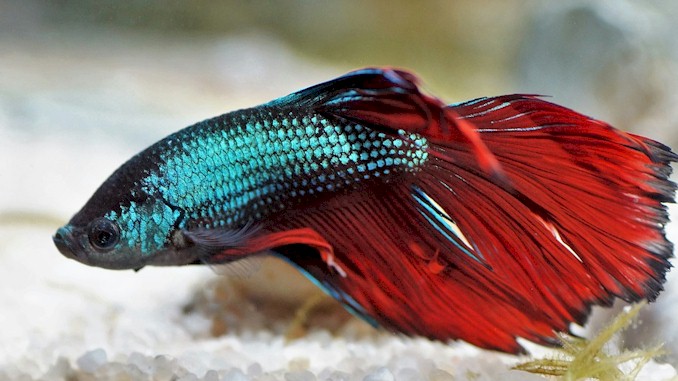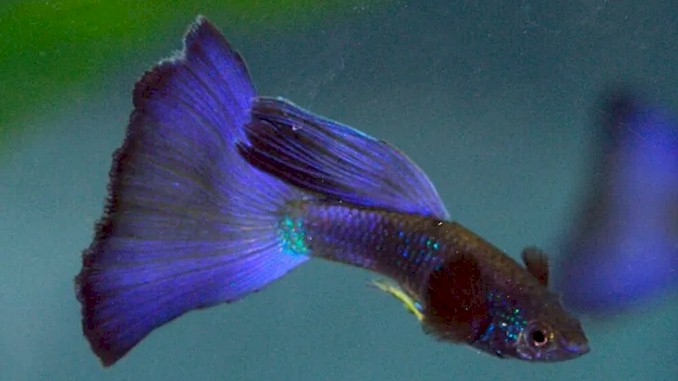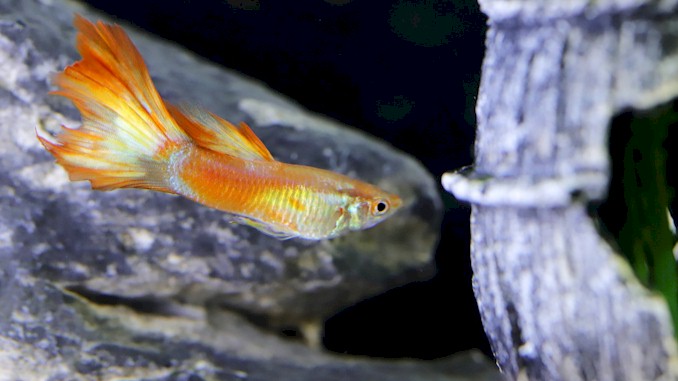How Long Do Guppies Live (+10 Tips to Increase Their Lifespan)
As an experienced guppy enthusiast, I know how important it is to provide the best care for your aquatic pets. One question that many guppy owners have is, “How long do guppies live?” This is a valid concern as you want your beloved fish to live as long as possible. Fortunately, I have the answer, and in this blog post, I will not only provide you with the typical lifespan of guppies but also share with you 10 valuable tips to help increase their lifespan. By the end of this article, you will have a comprehensive understanding of what it takes to keep your guppies healthy and thriving for years to come.
The lifespan of a guppy largely depends on various factors such as water quality, genetics, diet, and the environment. On average, a healthy guppy can live up to 2-3 years in captivity. However, with proper care and attention, it is possible to increase their lifespan up to 5 years or more. In this article, we will provide you with essential tips and information to help your guppies live a long and healthy life.
But that’s not all. In this post, I will share with you ten practical tips on how to increase the lifespan of your guppies. By following these tips, you can ensure that your guppies live a long and healthy life. Whether you’re a beginner or an experienced guppy keeper, you’re sure to find valuable information that will help you keep your fish happy and healthy. So, keep reading to learn more about how to extend the lifespan of your guppies.
Factors That Affect the Lifespan of Guppies
Guppies are small but resilient fish that can live for several years under the right conditions. However, their lifespan can be affected by various factors. Understanding these factors is essential to help you provide the best care for your guppies and increase their lifespan.
- Water Quality: The quality of water in your guppy’s tank or pond is the most critical factor that can affect their lifespan. Poor water quality can lead to diseases and infections, which can be fatal to guppies. You should ensure that the pH levels, ammonia, nitrate, and nitrite levels are within the acceptable range. Conducting regular water changes and using a high-quality filter can help maintain the water quality.
- Temperature: Guppies are tropical fish that thrive in warm water. The ideal temperature range for guppies is between 72°F to 82°F (22°C to 28°C). Exposure to extreme temperatures can cause stress and weaken their immune system, making them susceptible to diseases.
- Diet: A well-balanced and nutritious diet is crucial for the health and longevity of guppies. Feeding them high-quality flakes, pellets, or live food like brine shrimp or bloodworms can provide them with essential nutrients, vitamins, and minerals. Overfeeding can lead to obesity and other health problems, so it’s important to feed them in moderation.
- Genetics: The genetic makeup of your guppies can also play a significant role in their lifespan. Some guppy strains have a genetic predisposition to certain diseases, which can shorten their lifespan. Choosing healthy and robust guppies from reputable breeders can help ensure that you have a better chance of raising healthy and long-lived guppies.
- Tank Size: The size of your guppy’s tank or pond can also impact their lifespan. Guppies need enough space to swim and explore. Overcrowding can lead to stress, aggression, and the spread of diseases, which can shorten their lifespan. A good rule of thumb is to provide one gallon of water for every inch of guppy in your tank or pond.
In conclusion, several factors can affect the lifespan of guppies, including water quality, temperature, diet, genetics, and tank size. Understanding these factors and taking steps to address them can help ensure that your guppies live a long and healthy life.
Understanding the Lifespan of Guppies: From Birth to Death
Guppies are popular among aquarium enthusiasts because of their bright colors and easy-to-care-for nature. But how long do they actually live? In this section, we will delve into the lifespan of guppies from the time they are born until their death.
The lifespan of guppies can vary depending on a few factors, such as genetics, environment, and care. On average, guppies can live for about two to three years. However, with proper care, some guppies have been known to live up to five years.
The first stage of a guppy’s life is the gestation period, which lasts for around 28 days. During this period, the female guppy will carry the fry in her belly until they are ready to be born. Once born, the fry are extremely vulnerable and require special care to ensure their survival.
In the first few weeks of life, guppies grow rapidly and develop their colors. They also start to exhibit their personalities and interact with their environment. It’s important to feed the fry nutritious food to ensure proper growth and development.
As guppies mature, they become more susceptible to diseases and health issues. It’s important to maintain a clean and healthy environment for them to thrive in. Additionally, providing them with a balanced diet and monitoring their behavior can help identify any health issues early on.
The lifespan of a guppy ultimately comes to an end, just like any other living creature. As they age, they may become weaker and more prone to disease. It’s important to recognize the signs of aging and provide them with extra care and attention during their final days.
In conclusion, understanding the lifespan of guppies from birth to death is crucial for providing them with the care they need to live a long and healthy life. Proper nutrition, a clean environment, and regular monitoring can help ensure your guppies live their best life.
10 Tips to Increase the Lifespan of Your Guppies
Now that you know the factors that affect the lifespan of guppies and have a better understanding of their lifespan from birth to death, it’s time to learn how to increase the lifespan of your guppies. Here are ten tips to help you keep your guppies healthy and thriving for as long as possible:
- Maintain proper water parameters: It’s important to keep the water in your aquarium clean and within the proper parameters for guppies. This includes maintaining a pH between 7.0 and 8.2, a temperature between 72°F and 82°F, and keeping the ammonia, nitrite, and nitrate levels at zero.
- Provide a balanced diet: Guppies are omnivores and require a balanced diet of protein and vegetables. Feed them a variety of foods, such as flakes, pellets, frozen or live brine shrimp, and vegetables like spirulina or spinach.
- Don’t overfeed: Overfeeding can lead to health problems, such as constipation and obesity, which can shorten your guppy’s lifespan. Only feed them what they can eat in a few minutes, two to three times a day.
- Keep the tank clean: Regularly clean the tank, including the substrate and decorations, to prevent the buildup of waste and harmful bacteria.
- Provide hiding places: Guppies are active and curious fish but also like to have hiding places to retreat to. Provide them with plants, rocks, or other decorations to make them feel safe and secure.
- Avoid overcrowding: Overcrowding can lead to stress, disease, and aggression, which can decrease the lifespan of your guppies. A good rule of thumb is to provide one gallon of water per inch of adult fish.
- Quarantine new fish: When introducing new fish to your tank, quarantine them for a few weeks to prevent the spread of disease.
- Monitor water temperature: Guppies are sensitive to temperature fluctuations, so it’s important to monitor the water temperature and keep it stable.
- Use a reliable filter: A good quality filter will help keep the water clean and prevent the buildup of harmful bacteria.
- Keep stress levels low: Guppies are sensitive to stress, which can lead to illness and a shorter lifespan. Avoid sudden changes in water parameters or tankmates and provide a calm and stable environment for your guppies.
By following these ten tips, you can increase the lifespan of your guppies and ensure they live happy and healthy lives in your aquarium.
Common Health Issues in Guppies and How to Avoid Them
Guppies are generally healthy fish, but like any living creature, they can suffer from various health issues. Being able to recognize and treat common guppy health problems can help to ensure a long and healthy life for your fish. Here are some of the most common health issues that can affect guppies and tips for preventing and treating them:
- Ich: Ich, also known as white spot disease, is a parasitic infection that can affect many types of fish, including guppies. It is caused by a protozoan parasite that attacks the skin and gills of the fish. Symptoms of ich include white spots on the skin, clamped fins, and lethargy. To prevent ich, make sure to maintain good water quality and avoid introducing new fish without proper quarantine. Treatment options include raising the temperature of the water, adding aquarium salt, or using medications specifically designed to treat ich.
- Fin Rot: Fin rot is a bacterial infection that can affect the fins and tail of guppies. It can be caused by poor water quality, stress, or injury. Symptoms of fin rot include frayed or ragged fins, redness or inflammation, and lethargy. To prevent fin rot, make sure to maintain good water quality, avoid overcrowding, and provide hiding places for your fish. Treatment options include improving water quality, adding aquarium salt, and using antibiotics.
- Dropsy: Dropsy is a serious condition that can affect many types of fish, including guppies. It is caused by a bacterial infection that affects the fish’s kidneys, leading to fluid buildup and swelling. Symptoms of dropsy include bloating, pineconing of the scales, and lethargy. To prevent dropsy, make sure to maintain good water quality, avoid overfeeding, and avoid introducing sick fish. Unfortunately, dropsy is difficult to treat, and in many cases, it is fatal.
- Swim Bladder Disorder: Swim bladder disorder is a common problem in guppies and other fish. It is caused by an issue with the fish’s swim bladder, which affects their buoyancy and ability to swim properly. Symptoms of swim bladder disorder include floating to the top or sinking to the bottom of the tank, swimming erratically, and lethargy. To prevent swim bladder disorder, make sure to avoid overfeeding and provide a balanced diet. Treatment options include fasting the fish, adding aquarium salt, or using medications specifically designed to treat swim bladder disorder.
- Velvet Disease: Velvet disease is a parasitic infection that can affect guppies and other fish. It is caused by a type of protozoan parasite that attacks the fish’s skin and gills. Symptoms of velvet disease include a golden or rust-colored dusting on the skin, lethargy, and difficulty breathing. To prevent velvet disease, make sure to maintain good water quality, avoid overcrowding, and avoid introducing sick fish. Treatment options include raising the temperature of the water, adding aquarium salt, or using medications specifically designed to treat velvet disease.
By being aware of these common health issues and taking steps to prevent and treat them, you can help ensure a long and healthy life for your guppies. However, if you notice any unusual behavior or symptoms in your fish, it is always best to consult with a veterinarian or an experienced fishkeeper to ensure proper diagnosis and treatment.
How to Provide the Best Living Conditions for Your Guppies
Guppies are tropical fish that require specific living conditions to thrive and live a long, healthy life. In this section, we’ll discuss everything you need to know about providing the best living conditions for your guppies.
- Tank Size: The size of the tank plays a crucial role in the health and well-being of your guppies. A general rule of thumb is to provide a minimum of 1 gallon of water per inch of adult guppy fish. This means that if you have a group of 5 adult guppies that are 2 inches each, you’ll need a tank that is at least 10 gallons in size.
- Water Quality: Guppies are sensitive to poor water quality, which can lead to health problems and a shortened lifespan. It’s essential to keep the water clean and free from toxins, ammonia, and nitrites. Regular water changes and proper filtration can help maintain water quality.
- Water Temperature: Guppies are tropical fish that require warm water temperatures to thrive. The ideal water temperature for guppies is between 75-82°F (24-28°C). A reliable aquarium heater can help you maintain the correct water temperature in your tank.
- Lighting: Proper lighting is crucial for the health of your guppies. They need a balance of light and dark periods to regulate their circadian rhythm. A timer can help ensure that your guppies receive the right amount of light each day.
- Substrate and Decorations: The substrate and decorations in your tank can affect the health and happiness of your guppies. A smooth substrate is recommended to prevent injury to their delicate fins. Plants, caves, and other decorations can provide hiding places and enrichment for your guppies.
- Feeding: Guppies are omnivores and require a balanced diet to stay healthy. Provide them with a variety of high-quality foods, including flake food, pellets, and frozen or live foods. Be sure not to overfeed, as this can lead to health problems and poor water quality.
By following these tips, you can create the ideal living conditions for your guppies and help them live a long and healthy life.
How Long Do Guppies Live Compared to Other Fish
When it comes to the lifespan of fish, guppies are known to be relatively short-lived. However, compared to other fish species, their lifespan varies widely. Here is a table comparing the lifespan of guppies to other popular fish:
| Fish Name | Lifespan |
|---|---|
| Betta fish | 2-3 years |
| Goldfish | 10-15 years |
| Neon tetra | 5 years |
| Angelfish | 10 years |
| Discus fish | 8-10 years |
| Corydoras catfish | 5-10 years |
As you can see from the table, guppies have a relatively short lifespan compared to other fish species. However, their lifespan can be extended with proper care and attention.

